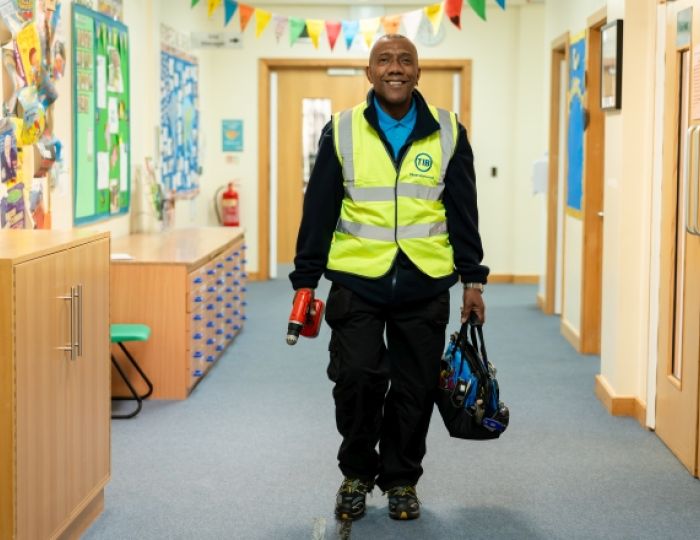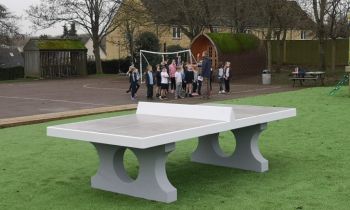The pandemic highlighted how integral support staff are, with 88% of teaching assistants (TAs) in school during lockdowns supporting vulnerable and key worker children.
Already very stretched, support staff often managed classes single-handedly, prepared and delivered home learning packs, checked in on families, and took children to and from school - research by UCL, funded by Unison, reported 38% of TAs had been asked to take on increasing and varied responsibilities.
Now seems a good time to reflect on how to ensure support staff are supported themselves, and how this contributes to the overall learning environment for the children.
Start by asking
Senior leaders spend a lot of time thinking about how children might learn best, and this is knowledge that can be transferred to supporting your team.
A good place to start the conversation is to ask your staff about the training or support they would find useful. For instance, as a teaching assistant, I would have valued a range of input:
- Observations from a senior leader providing constructive feedback about my practice whilst also gaining a better understanding of the children I was supporting.
- Regular check-ins with the teacher and support staff team to understand how we were supporting children, what challenges we faced and what we felt was working well.
- Specific training on supporting neurodivergent children, children with physical disabilities and children with Social Emotional Mental Health needs.
More broadly it is also worth asking your support staff what they want to get out of their role, or more specifically the next term.
What are their personal goals and how can you support them to achieve these?
It’s possible they have ambitions to move into teaching, or they might be content to remain as learning mentors or teaching assistants, but you won’t know unless you ask. You may have a brilliant future teacher among your staff.
Building a learning community
Last year the Education Endowment Foundation updated its Teaching and Learning Toolkit to note that teaching assistants do have an impact on improving children’s learning and development. However, the impact they have is inconsistent, and can be difficult to define and quantify:
“…there is good emerging evidence that TAs can provide noticeable improvements to pupil attainment. Here, TAs are working well alongside teachers in providing excellent supplementary learning support. However, importantly, this is happening inconsistently across classrooms and schools.”
(Making the best use of teaching assistants, Guidance report, p.6)
This underlines the value in developing support staff to be as effective as possible and for their support to be consistent. Finding the time and budget for CPD is challenging, so use your INSET days.
Staff meetings can also be utilised to provide group CPD for all classroom practitioners. Where a member of the support staff team participates in external CPD, can they run a school-based session for the rest of the team sharing what they’ve learnt?
A good idea is to build a library of resources on topics that will support the development, understanding and skills of your staff. Share videos, podcasts, books or articles on topics such as how trauma impacts brain development, metacognitive strategies and the impact of intersectionality.
Make this library easily accessible and regularly updated, encouraging everyone to contribute to it too.
The power of language
Rethinking the language you use for, and around, your support staff can have a powerful impact on how valued they are and their status within the school community.
The University of Cambridge Primary School has renamed its support staff ‘Learning Coaches’ which is a fantastic example of how a school can empower its workforce.
The senior leadership team also includes a support staff member, and this ensures all voices are heard in discussions about the school’s development.
Making sure staff feel heard and valued is integral to building and maintaining a positive working and learning environment. Giving space to hear the voices of all staff, and changing the language you use to empower others, will have a positive impact on the school culture.
Contributing to teaching and learning outcomes
The partnership between the teacher and support staff is essential for ensuring both are as impactful as possible. For senior leaders this means reviewing the ways in which teams communicate and share plans.
Do the teacher and support staff just have a quick exchange at the beginning of the day? Or do they have time to look through plans together to discuss the learning?
Support staff spend so much time focused on the children and can often provide invaluable observations and insight into their learning. This input can be incredibly useful for feeding into planning and thinking about effective support, so don’t miss out on the possible benefits of these perspectives.
A collaborative community
Building a community where support staff feel confident to contribute to discussions about teaching and learning means they will feel valued and respected.
An ethos that is about celebrating and hearing ‘many voices’ can create an environment where support staff feel comfortable to lead.
As a senior leader it’s important to reflect on the role you play in helping to create an open and accepting space where collaboration can flourish. How do you stay connected and ensure all staff feel you are approachable, supportive and constructively honest?
The pandemic has underscored the value of support staff and I hope many senior leaders are rethinking our role. Part of this is ensuring that we instill a culture where everyone feels safe to learn and develop.
Researcher and author Professor Brené Browni, talks about ‘shame resilient classrooms’ where something going wrong is seen as an opportunity to learn.
It’s as relevant to supporting and enabling class teachers and support staff, as it is to pupils. We learn best together.
Need resources? Here’s a good place to start
There is a lack of resources and information aimed specifically at support staff, but the following may be helpful:
- 1. Education Endowment Foundation (EEF) The EEF has been influential in shaping, and reshaping, attitudes to support staff. Its latest, updated Teaching and Learning Toolkit (October 2021) includes teaching assistants which finds that TAs add an additional four months of pupil progress over a school year. As well as the Toolkit, the EEF also produced specific guidance on the best use of teaching assistants – the latest being Making best use of teaching assistants (November 2021).
- 2. Aimme Durning MBE Aimme is director of inclusion and community at University of Cambridge Primary School, and has featured on the Tapestry/FSF podcast discussing her strategy for using support staff at their school. Articles on Unlocking Research to Power Practice, and Reflecting on The Role of Support Staff can be found online (eyfs.info).
- 3. Suffolk TA Network This is a network of more than 200 TAs across the Suffolk area that regularly share useful resources via Twitter (@SufolkTAN).
- 4. Unison As the main union for support staff, Unison lobby government and organisations, such as the EEF, about the value of its members. It also commissions new research such as ‘Unsung Heroes – The role of teaching assistants and classroom assistants in keeping schools functioning during lockdown’, which was undertaken by UCL.
Anya Edwards, is education advisor at Tapestry, the online learning journal, and a former teaching assistant.




_945_573_80_int_s_c1_c_t.jpg)





